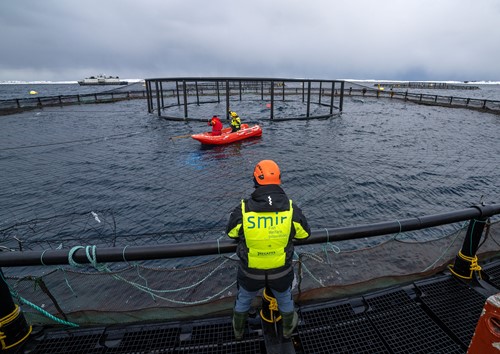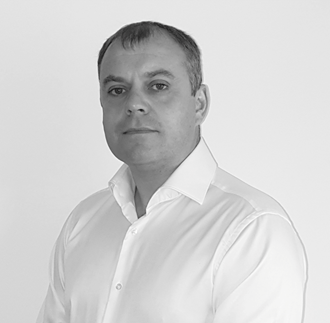SAIC Introduces: Smir
In the latest 'SAIC introduces' instalment, we would like you to meet Smir – a supplier to the aquaculture industry that creates new and innovative solutions that contribute to a more environmentally friendly and cost-efficient way of farming.
Founded in 2015, Smir creates new and innovative solutions that contribute to a more environmentally friendly and cost-efficient way of farming, with specific focus on systems for delousing, semi-closed fish farming, and waterborne feeding. Smir is currently working with farmers from Norway, Scotland, Chile, Canada, Iceland, and the Faroe Islands among other locations, and has offices in Norway, Scotland, and Chile.

Alan McFadyen, Smir Group's Director in Scotland, says: “It all started back in 2014 with the development of the Hydrolicer delousing system, which has been the company's main product for several years. However, in 2019 we decided to expand our product portfolio to also include systems for semi-closed pen technology and waterborne feeding. In that context, we also changed the name of the company from Hydrolicer Production AS to Smir, which is a traditional Norwegian word that can be translated into English as “forge” – the process a blacksmith uses to create new and useful solutions. So, now we have three main focus areas, but we are continuously looking at developing new and useful solutions that are contributing to a more cost-efficient and sustainable way of farming”.



The newest solution on the market is “Smirfeeder”, a gentle and energy-efficient waterborne feeding system that uses water as a source of transportation for pellets.
“In accordance with Smir's established values, we were keen to develop something that could contribute to lowering production costs, and at the same time reduce the farmers environmental footprint. After discussing with farmers and hearing their requirements, we developed the waterborne feeding system Smirfeeder, which is a system that challenges the traditional way of feeding using air”.
“Compared to traditional airborne feeding systems, this system is gentler on the pellets, which leads to improved FCR due to less dust and breakage. It also reduces wear and tear on the feeding pipes, and the energy consumption can be reduced by as much as 90%. The system is primarily designed for underwater feeding, which can help the farmer to keep the fish away from areas where sea lice and other organisms are more prevalent. It can be installed both as a retrofit on existing feeding platforms and on newbuilds, and is equipped with a selector valve that can distribute pellets to up to six pens simultaneously”.
Smir is excited about connecting with anyone in the Scottish aquaculture sector who are looking for innovative solutions that contribute to a more environmentally friendly and cost-efficient way of farming.
To find out more, please contact Alan directly, check out the company's website, or – if you are going to Trondheim this August – visit Smir’s stand at Aqua Nor: A-131.
Discover moreShare this